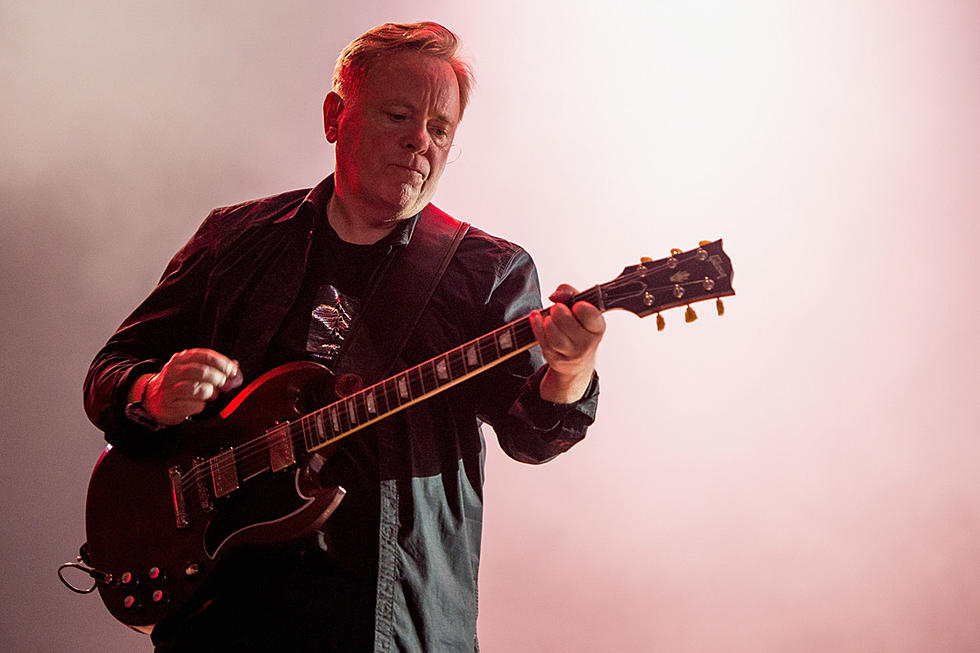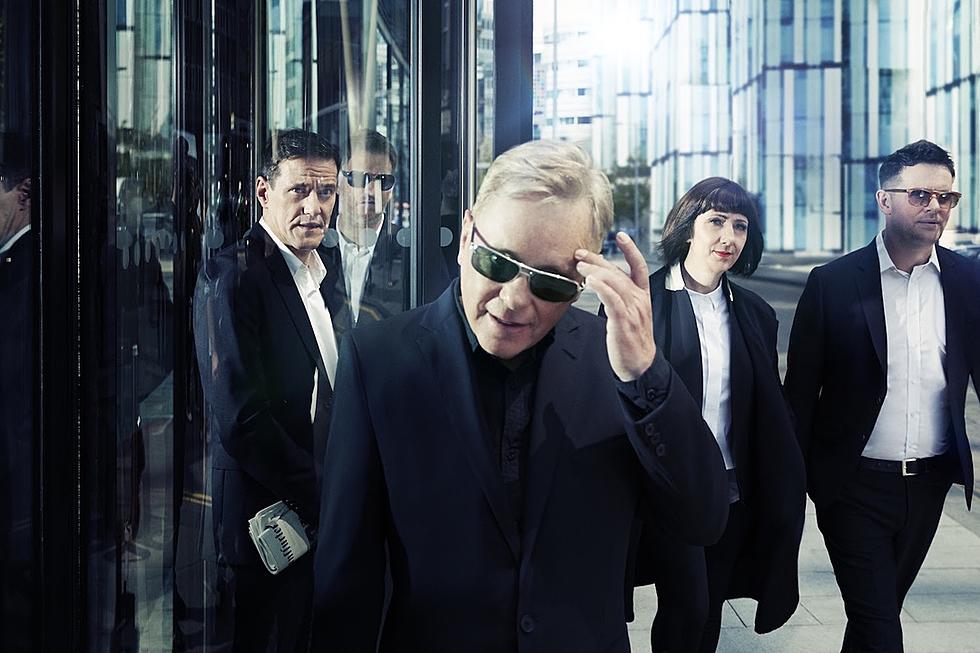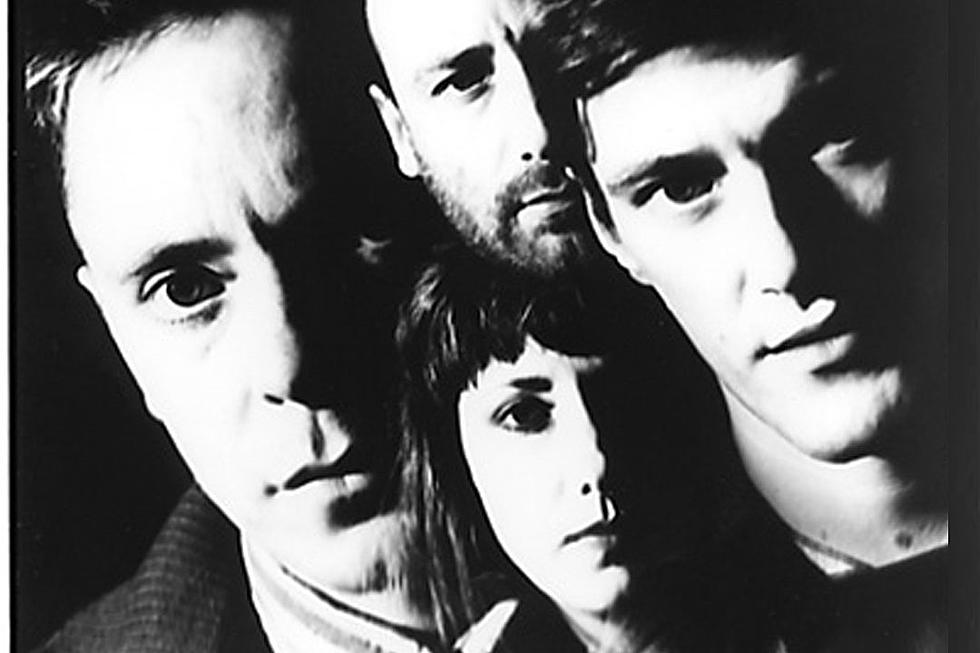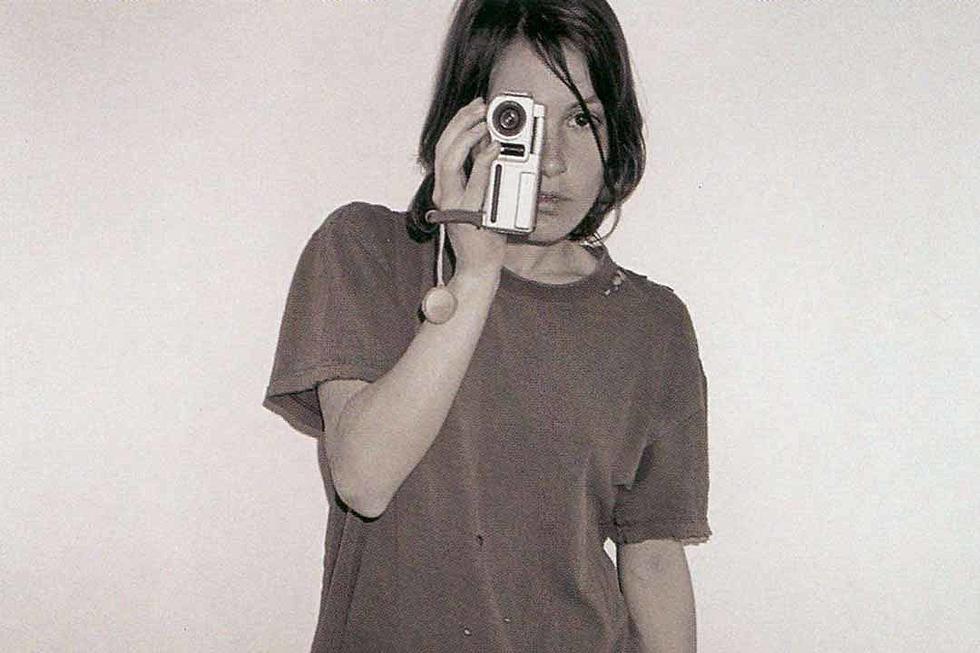
Peter Hook on His Tell-All Book, Bootleggers and How New Order’s Catalog Ranks: Exclusive Interview
Last week, Peter Hook’s long-awaited tell-all, Substance: Inside New Order, was finally released in the States, three months after it made waves in his home country of England. The bassist’s lengthy tome paints an unflinching portrait of a band that rose waveringly after the death of Ian Curtis brought Joy Division to an abrupt halt in 1980. Hook, along with his Joy Division bandmates singer/guitarist Bernard Sumner, drummer Stephen Morris, added keyboardist Gillian Gilbert and went on to single-handedly create the dance-rock genre that blew up in the ‘80s as New Order.
Following an incredibly acrimonious split in 2007, the group decided to continue on without Hooky leading to him filing a lawsuit for unpaid royalties. He then began what can best be described as a series of beautifully vindictive tours where he started playing Joy Division’s debut Unknown Pleasures in full, followed by their final studio album Closer and the collection Still. Next, he started in with the New Order catalog, most recently delivering a marathon performance of the respective Joy Division and New Order singles compilations, both titled Substance. Next up is the latter band’s Republic and Technique.
This past weekend, Hooky completed a brief, coast-to-coast, four date book tour in America to promote Substance. He sat down the day of his final stop, in San Francisco, to talk about wanting the 768-page epic to be longer (seriously), how his views on New Order changed while writing it, and what he would say if the band asked him to come back.
The book is a little light – isn’t it? Will there be an unabridged version put out?
[Laughs] Funnily enough, it was delivered as 300,000 words, 1,200 pages; and the publisher refused to publish it. So I had to cut it down by a third – I had to take a book off it. I’m hoping, actually, when the paperback version comes out, they’ll allow me to do the extended e-book, which will have the extra 100,000 words, because it’s got a hell of a lot more technical information as well as a couple of anecdotes we left out.
You mention technical information. One of the features in the book are the sidebars labelled “Geek Alert” where you go into the mechanicals of the different sequencers, programmers and bass rigs you used. Not only is that interesting to techies, but also because New Order was based so much in innovative sound, it’s fascinating to see what exactly was used to generate it.
That was the point, you see. And realize that there’s a lot of “playing” in it, and my impression was not to break down how hard we worked and how hard, particularly Stephen and Bernard worked, to create that sound. I was resisting it valiantly, because I wanted us to be just like Joy Division, and I didn’t have the foresight to see that it was going to lead somewhere fantastic. The only credit I can take is I did the rock part, while they did the dance part. We all embraced [technology], but some of us embraced it more than others. In my mind, it is important to detail how we did it, because it is absolutely fascinating. The other aspect is not only was it a pain in the ass to do in the studio, it was even more of a pain in the ass to do live; and lo and behold little old us, we decided to stay true to our roots and play the whole bloody lot live. I remember laughing at Depeche Mode, because they had a tape recorder with all their [samples] on it. And then literally we were spending every day trying to fix it because it just broke apart all the time. But the thing is, it gave you some remarkable gigs, because when it broke down you had to ad-lib, you also had some gigs that were fantastic because it worked perfectly and some gigs were terrible because it worked terribly. It was very exciting.
You did have some terrible gigs, particularly those Top of the Pops performances.
Well Tops of the Pops was dead obvious. It was just the fact that we ran into it like a bull, because they wanted us to mime, and we said, “No…we don’t mime – we only play live.” It’s a weird distinction, because some people, especially Americans when we first started using backing tracks, they felt a bit cheated because the machines were playing the parts – so it’s a bit tenuous, really, the distinction.
But on Top of the Pops, the main thing was the studio wasn't setup for live playback - of anything. Literally they had a hi-fi and that was it, so all the rest, you had to cobble together, and it was doomed to failure. But in our "punk handbook," that was rule number one: "Always stay true to yourself, and f--- 'em," which is exactly what we did, and they f---ed us. Again, in the punk handbook, rule number two: "If your record goes down, it's just as valid as when it goes up [on the charts]." It ticked all the boxes for us; we got to annoy the BBC, do a Sex Pistols on them - shocked them when they appeared on TV, it was the same thing when New Order played - and the record went down 10 places. We were delighted.
Was it a roller-coaster of emotions revisiting the history of the band while you wrote it? Because there are so many ups and downs.
Yes. The problem I've got, which is still ongoing, is the legal action I've got against the others really has tainted New Order for me - completely. I've been fighting them now for five and a half years. It makes you feel like any divorce or separation, that everything was s---. Doing the book actually showed me how much good we achieved, how fantastic we did work together and what was almost an impossible situation to make New Order a massive international success. It made me feel a lot better actually, doing the book that I was feeling, [than] suing the others. It was quite odd to document it. It made me realize that at one point we were all facing the right direction; all had the same problems, all had the same enthusiasm, the same ambition and we supported each other - and it's a bloody shame we can't do that now.
Why do you think so much care is taken by bootleggers and the like to get New Order right? You even had to put a disclaimer at the beginning of the book about running times being correct to the best of your knowledge.
They're a cult group, New Order. It was very interesting to do the book and see how much respect and reverence you're shown by the fans, how many fansites there are and some wonderful, wonderful stuff on the fansites. I tried to feature a lot of tickets, flyers and things like that, but there simply wasn't room to put them in, in the book. My ambition has always been to get all the collectible stuff together in one place, so that you just go to this place and see everything to do with New Order; the album sleeves, the flyers, the tickets, the t-shirts and everything. I'm still holding onto that ambition.
It would make for a fantastic coffee-table book of all those images.
Warners are doing a collector's series of the albums, a box set that will be more like that. I got a wonderful present for my 60th birthday which was Led Zeppelin II, complete with all the flyers and gig posters, a vinyl edition - it was wonderfully done, and I took it and showed it to Warner Bros. and said, "This is how our next reissue should be." You know, really give the fans something to treasure. We're working towards that aim, thank God.
You do a lot of rankings in the book, from “Ten Best Hotels” to “Ten Most Interesting Medical Problems I Got Working in a Band.” But one thing you didn’t rank is the Top 10 New Order albums, of which there is now – if you count Lost Sirens. We did it on Diffuser, and I’m curious as to how would you rank them from your favorite to least favorite?
Oooh - that's an interesting one. I think I'd rank them chronologically, actually. Because, playing Movement, as I have in its entirety, I actually realized what a bloody good record it is. And it takes on a life live that sadly [producer] Martin Hannett didn't manage to create for it on the record. I've played Movement in its entirety, which was wonderful - and I was devastated to see it go - I then moved onto Power, Corruption & Lies, Low-Life, Brotherhood, Substances - Substance New Order/Substance Joy Division - the next record I'll play will be Technique and Republic. I would leave it in that order. I think obviously the most important one was the first to get going again; it was a Joy Division musical album with New Order vocals. Then number two, the next most important, is a New Order musical album with New Order vocals...yeah, man - you know what? The more I think about it, the more it's in rank anyway.
One of the things that stands out when it comes to New Order is the remixes. Obviously, the music of the band lends to so many of them. But are there some where you’re like, “What the hell did they do to my song?”
[Laughs] Well, I was very dyed-in-the-wool as I was when we started the whole genre. It took me a long time to find a love for [remixes], and now I view it as a completely different thing. The interesting thing was, by the time we got to London Records [in 1993], there were millions of remixes. My God, they must've spent millions and millions of pounds on having the tracks remixed. I could never figure out, for the life of me, why you have so many. It was like that thing you know if you throw enough s---, it'll stick. It was just so overdone as a genre in the late 90s. I started off listing the remixes in the book, but then even I got bored! It was just ridiculous.
I lost count of the names you called Bernard in the book, from the ubiquitous “twat” to my personal favorite, “misery guts” [Hook laughs loudly], but if you had to say three good things about him, what would they be?
Three good things about Bernard… He's a fantastic musician. He does have, when he's in the mood, an incredibly, incredibly sense of humor, and what I loved about him when we played together, was that invariably at the end of a gig, me and him would come off flicking blood off our fingers where we'd cut ourselves on the guitar because we'd been playing it that hard. We were, on those occasions, we were blood brothers - it was as simple as that.
Throw out the lawyers; if Bernard called you up tomorrow and said, “Hooky, we’ve made a terrible mistake, would you please come back and join us?” What would you say?
I'd certainly consider it if it happened like that because, to be honest with you, I think the lawyers are enjoying the fight much more than we are [laughs]. The thing is, you do live in hope. It would be very difficult, because there's been a lot said, and a lot done that is hurtful and painful - and that's on both sides. It's not just them to me; it's me to them as well. We would have to be very big men - and women - to do that. Stranger things have happened.
New Order Albums Ranked in Order of Awesomeness
More From Diffuser.fm









